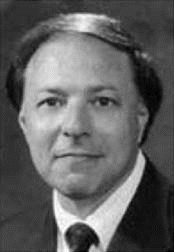 Not many conditions fluctuate without accompanying vertigo, except cochlear hydrops and AIED. So if they are not responding to the treatment for hydrops-that is, diuretics and salt-restrictive diet-then a trial of high-dose steroids would be a strong option.
Not many conditions fluctuate without accompanying vertigo, except cochlear hydrops and AIED. So if they are not responding to the treatment for hydrops-that is, diuretics and salt-restrictive diet-then a trial of high-dose steroids would be a strong option.Explore This Issue
December 2007-Jeffrey Harris, MD, PhD
The best way to approach that is to do no treatment but to test the hearing once a month. And if it is AIED, what you will see is that at every test the hearing is a lot worse. If you see over a span of one, or two, or three months that the hearing keeps dropping, you can be quite confident that it’s worth a trial of steroids, Dr. Rauch said.
Dr. Harris added that not all progressive bilateral cases look or act like AIED. Those we treat are rapid over weeks, and asymmetrical-one ear going out fast then followed by instability of the other one soon after. Blood tests should be obtained, but steroids should be started before the results are back, he said.
On the other hand, if the hearing fluctuates, the problem might not be AIED. I don’t treat this with steroids, but that’s very controversial. I only treat if the hearing is going down, said Dr. Rauch. Because there is no test for AIED, treatment choice is purely up to individual doctors and their best judgment. In his experience with this sort of case, hearing will fluctuate regardless of whether or not patients are on steroid treatment.
On the other hand, Dr. Harris pointed out, not many conditions fluctuate without accompanying vertigo, except cochlear hydrops and AIED. So if they are not responding to the treatment for hydrops-that is, diuretics and salt-restrictive diet-then a trial of high-dose steroids would be a strong option.
Both agreed, however that if hearing continues to deteriorate, steroids are the treatment of choice. If hearing is dropping relentlessly, I figure AIED is a possibility and I treat the patient with high-dose prednisone, 60 milligrams per day for one month, and repeat the hearing test, Dr. Rauch said. If the hearing is substantially improved, then he opts for a six- to 12-month slow-taper regime.
But if after one month of high-dose prednisone there’s no hearing improvement, then I wean them off the drug and that’s the end of that-it’s a treatment failure, and the diagnosis is a mystery, Dr. Rauch said.
For some patients, a step in treatment might be intratympanic steroid injections, but this is highly controversial. There have been no controlled studies demonstrating the effectiveness of the treatment, Dr. Rauch said.
Leave a Reply